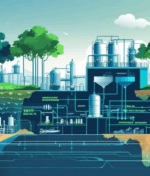
Technological Breakthroughs Revolutionizing Lithium Refinery Technology
Vardhaan Lithium (I) Pvt. Ltd. is pioneering state-of-the-art refining methods that are transforming India’s lithium production landscape—propelling the nation toward energy independence, industrial resilience, and clean technology leadership.
1. Mega-Scale Integrated Refinery Architecture
First-of-its-kind in India, Vardhaan’s facility in Butibori, Nagpur spans 500 acres, combining lithium refining and battery manufacturing under one roof.
Capable of processing 60,000 tonnes of lithium annually and producing 20 GWh of batteries, this integrated model dramatically shortens the value chain and accelerates production timelines.
2. Advanced Purification & Refinement Technologies
In collaboration with leading U.S. and European partners, Vardhaan deploys cutting-edge lithium hydroxide and carbonate purification systems.
These enable consistent production of battery-grade material that meets global specifications for purity and performance.
3. Eco-Optimized Dry and Direct Extraction Processes
Adopting emerging extraction techniques—such as electrodialysis and ion-selective membranes—Vardhaan achieves faster lithium recovery, lower water usage, and reduced chemical waste compared to traditional methods.
4. Circular Operations & Smart Automation
The refinery leverages digital process controls and closed-loop systems to optimize reagent usage, manage filtration cycles, and recycle byproducts—maximizing yield while minimizing environmental impact.
Feedback-driven automation ensures high operational efficiency and cost-effective output.
5. Vertical Integration from Mining to Manufacturing
With sourcing tied to lithium mining ventures in Zimbabwe, Vardhaan maintains end-to-end supply chain control—stabilizing upstream inputs and ensuring continuity in refined output for its Nagpur facility.
This integration enhances resilience against geopolitical and market volatility



Recent Comments